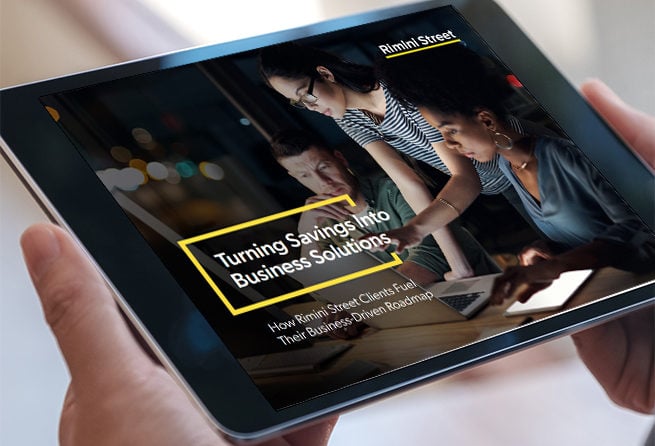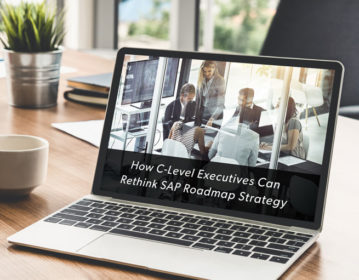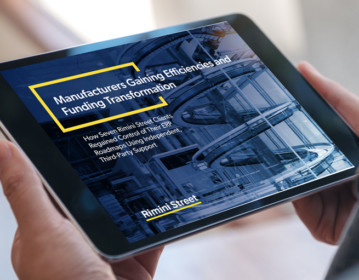2022 IT Buyer Sentiment Survey: A GCC Countries Executive Summary
During times of disruption, companies within the Gulf Cooperation Council (GCC) countries that innovate and proactively invest in their own future can emerge stronger on the other side. How are CTOs and CIOs leading the charge to meet their 2022 objectives in a business landscape that included a global pandemic and economic and political uncertainty? What is the role — and priority — of technology in combating disruption for organisations with GCC countries? What are IT leaders’ feelings towards digital transformation and the cloud? What are their top IT initiatives for 2022?
In this report sponsored by Rimini Street, Censuswide reveals results of its GCC region IT buyer sentiment survey covering industries including Telecoms, Financial Services, Oil and Gas, Retail, Manufacturing. They provide insights on those questions and more, including:
What types of initiatives would IT leaders like to see more of in 2022?
What initiatives would IT leaders like to cancel in 2022?
What are the biggest challenges being faced when trying to meet digital transformation objectives?
What are IT leaders’ plans, if any, for cloud migration?
What % feel positively about their enterprise application vendor’s cloud offering?
What % are looking to move to an open-source database?
What % are dissatisfied with their enterprise application vendor support and why?
Assess how your organisation stacks up — and your progress on digital transformation — by downloading the report today.
Global Enterprises Drive Innovation with Hybrid IT Strategy
Cloud is a dominant force in enterprise software today. Moving data and workloads to cloud-based environments can drive competitive advantage, particularly by helping enterprises meet changing customer demands and enable new processes.
Despite their popularity, cloud systems may not be the optimal strategic solution for entire IT landscapes. In many cases, internally deployed, customized ERP systems are robust and highly-functional, and there is no business case to move them to the cloud.
Creating a hybrid IT strategy then becomes a smart path to optimizing IT budgets, choosing best-of-breed SaaS solutions, and accelerating digital transformation. To help fund these hybrid IT solutions, many organizations are switching from software vendor support to independent, third-party support, saving up to 90% on total maintenance costs and redirecting scarce IT budget dollars to innovation.
In this informative e-book, you’ll meet five Rimini Street clients that are executing a hybrid IT strategy facilitated by third-party support, reallocating savings to initiatives such as:
Low-code application development
New marketing programs
Rollout of electronic data interchange (EDI) for e-commerce
Development of a cloud-based information technology service management (ITSM) application
Freeing up IT staff for new projects
Find out more about the benefits of third-party support for hybrid IT solutions. Read this new eBook.
How IT Leaders Can Rethink SAP ERP Strategy
Digital transformation is a high priority for IT leaders these days, as is driving pandemic recovery, growing the top line, and reducing costs. SAP licensees have additional considerations including SAP innovation, S/4HANA, and avoiding SAP lock-in.
In this on-demand webinar, Rimini Street’s Hari Candadai speaks with accomplished former CIO Tom Grooms (previously of CF Industries, Valspar, and Medtronic) and global SAP expert Jennifer Perry on key considerations for rethinking SAP ERP strategy now.
Highlighted in the discussion are findings from a recent IDG SAP global survey including the importance of maximizing the current SAP investment and using or considering third-party support as part of an SAP ERP strategy.
Manufacturers Gaining Efficiencies and Funding Transformation
Learn how 7 manufacturers gained operational efficiencies and funded digital transformation with Rimini Street third-party support for enterprise software.

















